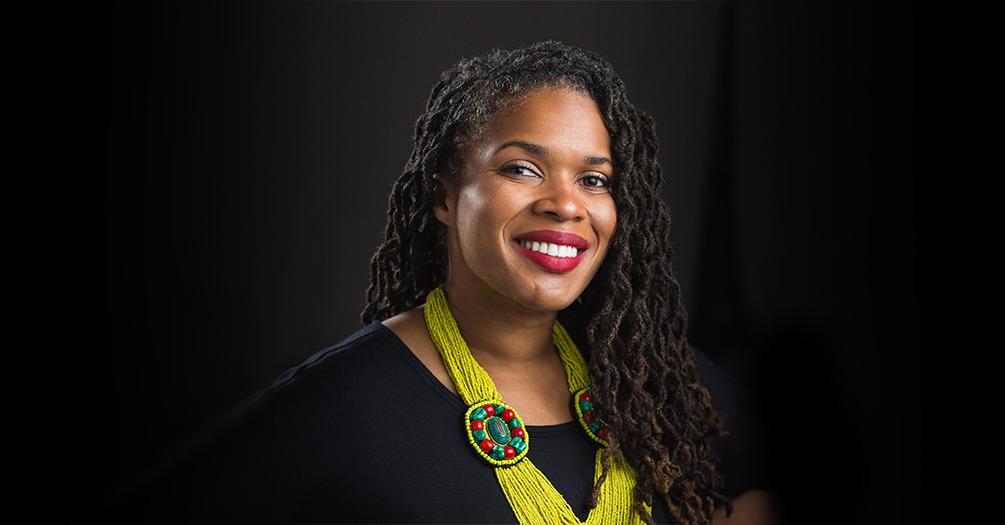Leadership at the Intersections of Public Health, Race, and Gender

Whitney Peoples, PhD
Director of Diversity, Equity, and Inclusion
Whitney Peoples is the inaugural director of Diversity, Equity, and Inclusion at the School of Public Health. Dr. Peoples comes to us from the Center for Research on Learning and Teaching (CRLT), where she served as a director in Educational Development and Assessment Services and coordinator of DEI Initiatives and Critical Race Pedagogies.
Peoples earned a PhD in Women's, Gender, and Sexuality Studies from Emory University, an MA in Women's Studies from the University of Cincinnati, and a BA in Political Science from Agnes Scott College. She has spoken and written on the intersections of race, gender, health, and popular culture, taught broadly in the area of Women's and Gender Studies and African American Studies, and published critical essays on topics including reproductive justice, Black feminist health science studies, advertising for oral contraceptives, and representations of women in African American film.
We are delighted to welcome Dr. Peoples to the Michigan Public Health community and grateful for the opportunity to ask her a few questions about her move to this new role.
Where did you grow up and why have you pursued extensive engagement in women's, gender, and sexuality studies?
I grew up in Fort Worth, Texas, in a family of advocates and activists that always encouraged me to think about my role in pursuing justice. As early as elementary school, I can remember participating in anti-racist community organizaing with my mom and aunts. So when I encountered Women’s, Gender, and Sexuality Studies (WGSS) in college, I found it was a natural extension of the environment in which I’d been raised. Moreover, WGSS allowed me not only to build on but also to expand the core frameworks around fairness and equity that I’d initially learned from my family.
What drew you to working in public health and what are some things about the school that you find really exciting?
My own research has focused on matters of health and the intersections of race and gender. I have taught courses and published on these issues, including a co-edited volume on reproductive justice. Public health as a field of scholarship and practice has always been close to my work.
In terms of what excites me about the School of Public Health, I’d have to say it’s the people—students, staff, and faculty. I have had the opportunity to work with several faculty, staff, and students in the school and have consistently found them to be people personally and professionally committed to creating and maintaining just and equitable teaching, learning, and working environments.
What are our biggest challenges today on the Michigan campus and at the school in creating more equitable, inclusive spaces for learning and teaching?
There are a number of challenges, including the ongoing impact of COVID-19—which both creates new challenges to equity and inclusion and exacerbates existing ones. Another area that is a key challenge and fruitful opportunity—for both the school and the larger university—is the matter of how we systematically move beyond awareness of inequity and marginalization in our communities to sustained action and changed practices, policies, and cultures in support of equity and justice. The DEI strategic plan of the last five years has provided a foundation that we can build on. The work to come on the DEI 2.0 plan will offer more opportunities to live into our institutional mission and values around equity and justice.
- Interested in public health? Learn more today.
- Read more stories about Michigan Public Health staff.
- Support research and engaged learning at Michigan Public Health.
